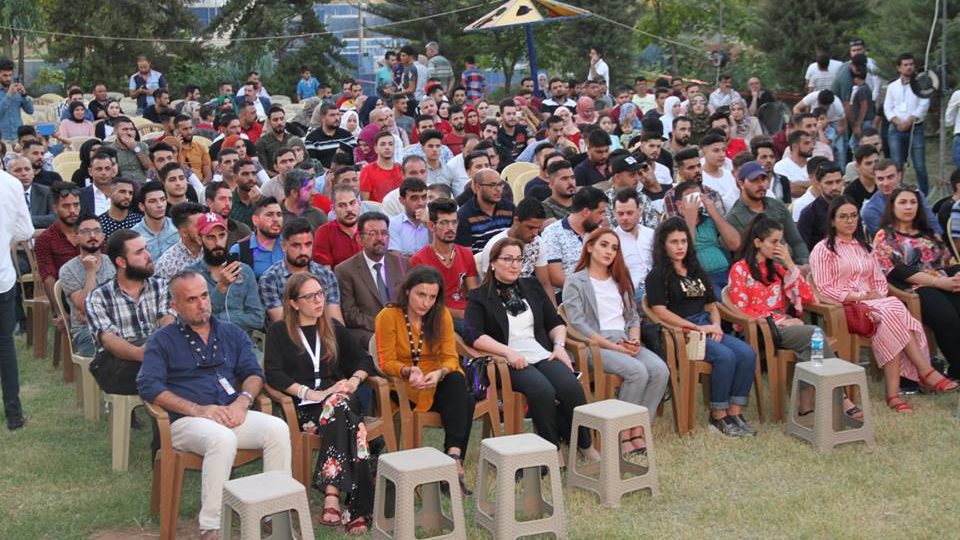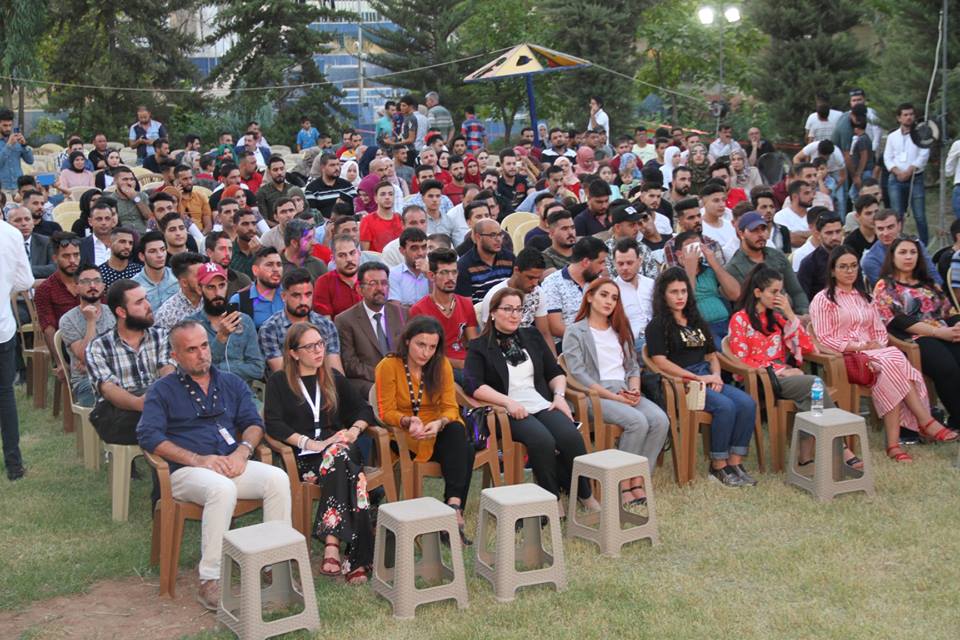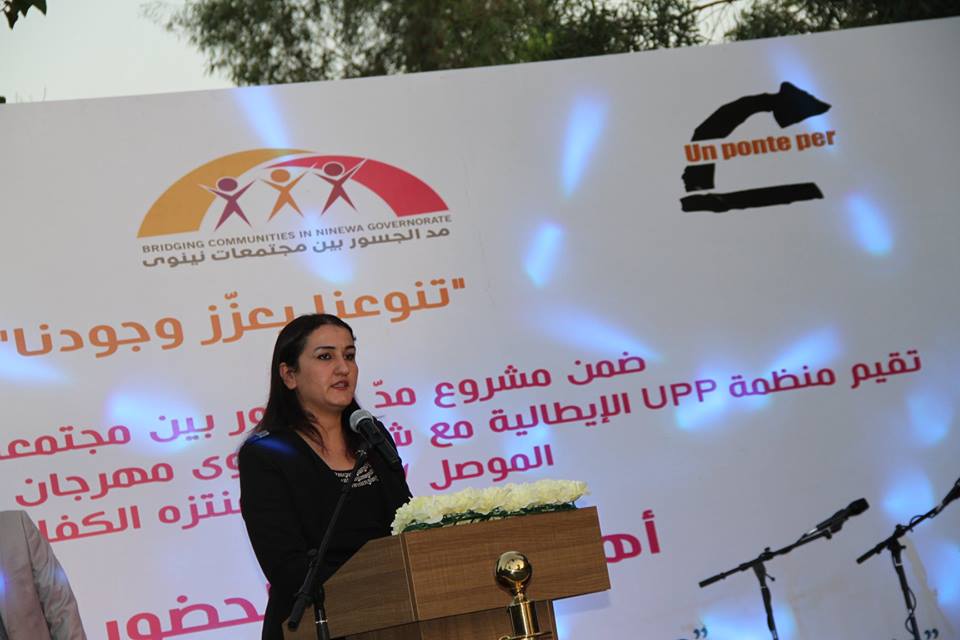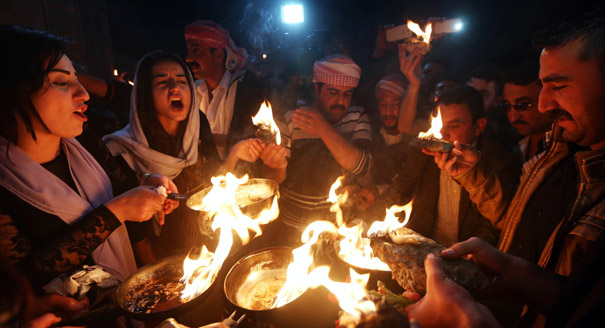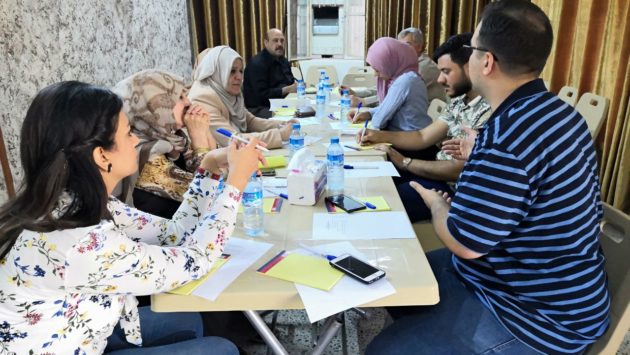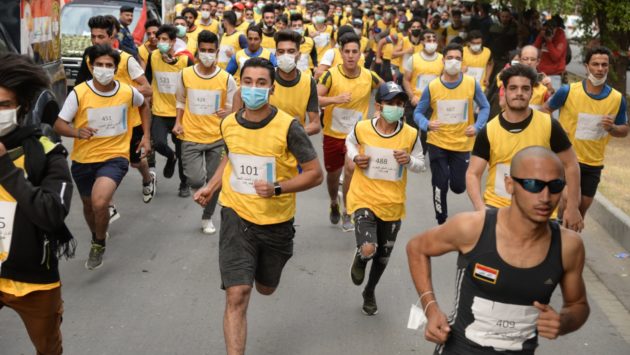Mosul Celebrates the Return of Diversity
Follow up Jameel Aljameel
Over 400 Mosulians (the people of Mosul) celebrated the return of life and activity to their city after its liberation from Daesh in the World Youth Festival in Mosul on Sunday 12 August 2018. The festival, organized by the Italian organization Un Ponte Per… (UPP) in cooperation with the Nineveh Youth Group, took place in in Al-Kafahat Park, where youth groups and civil society organizations came together to offer residents a day to cultivate hope and to begin to repair and restore the rich and diverse social fabric that makes up the city.
The festival’s slogan, “Our Diversity Enhances our Existence”, reflects its aims as well as those of the broader project “Bridging the Nineveh Communities” of which it is a part.
People from different sects and varied traditions came together to enjoy the festival, representing the rich and diverse backgrounds of Mosul’s original inhabitants. The festival carried messages of peaceful co-existence and acceptance, an awareness that all people share a common humanity. Susan Safar, a representative of the Yezidis, made a speech expressing her joy at the return of thriving civil life within Mosul. She also called on those present to support the ongoing struggles of the Yazidi people. Father Thabet Habib represented members of the Christian community in the Nineveh Plain, and spoke of the possibility of living together in peace and unity. Hussain al-Hattab’s speech expressed tolerance, love and diversity, insisting that Nineveh belongs to all of its people, not just one religion or ethnicity. Turks from the city also expressed their readiness to join hands with all the different people of Nineveh to create and new and dynamic reality for the city, one which is grounded in peace and social harmony.
The residents of Mosul, who underwent such extreme suffering during the years under the control of Daesh, came together to sing Iraqi songs expressing diversity and brotherhood. The festival opened with a broad welcome to everyone present, from all parts of Nineveh. People sang the Iraqi national anthem, and then had a minute of silence for the innocent people who lost their lives. Eleonora Biasi, head of the UPP mission in Iraq, expressed the organization’s continued support for activities aimed at peace and social cohesion. UPP’s country representative and consultant on the “Bridging the Nineveh Communities” project, Raed Michael, praised the role of youth and all volunteers who have been promoting peace, restoring people to their homes and contributing to the stability of the city as it reemerges. “The Yazidis, the Christians, the Shabaks, the Turks and the Kakais have been far from Mosul in these recent years,” he said. “Today, Mosul is quickly becoming a city that believes in pluralism, democracy, peace and acceptance of difference.”
Representatives from the “I’m Iraqi – I Read” initiative spoke about their role in educating people and encouraging them to participate and engage in cultural events. After that, a group of activists, media workers and volunteers who helped displaced people return to their homes was honored. The festival also included the poetry and several competitions. It concluded with a performance by musician Mohamed Zaki which inspired people to dance to the music of their youth, to celebrate the return of life and activity to the city after its liberation.
The “Bridging the Nineveh Communities” project is aimed at building peace, promoting social cohesion and ensuring the safe return of displaced people to their homes in Nineveh. This project has been a great success in its first phase and has helped bring the the diverse communities in Nineveh together, reducing the the tension in the Nineveh Plain.It is funded by (GIZ) and implemented by the Italian Organization, UPP.

